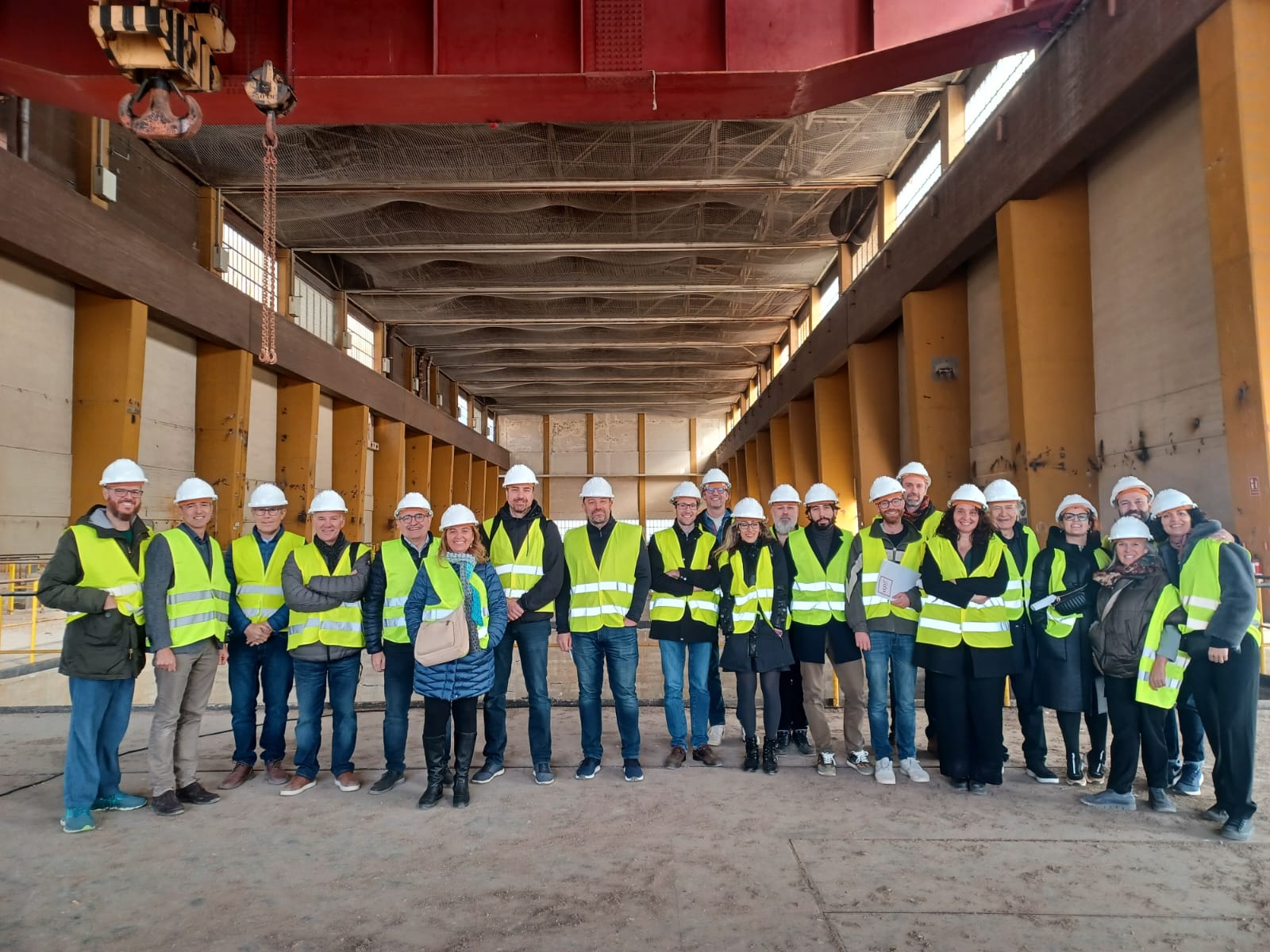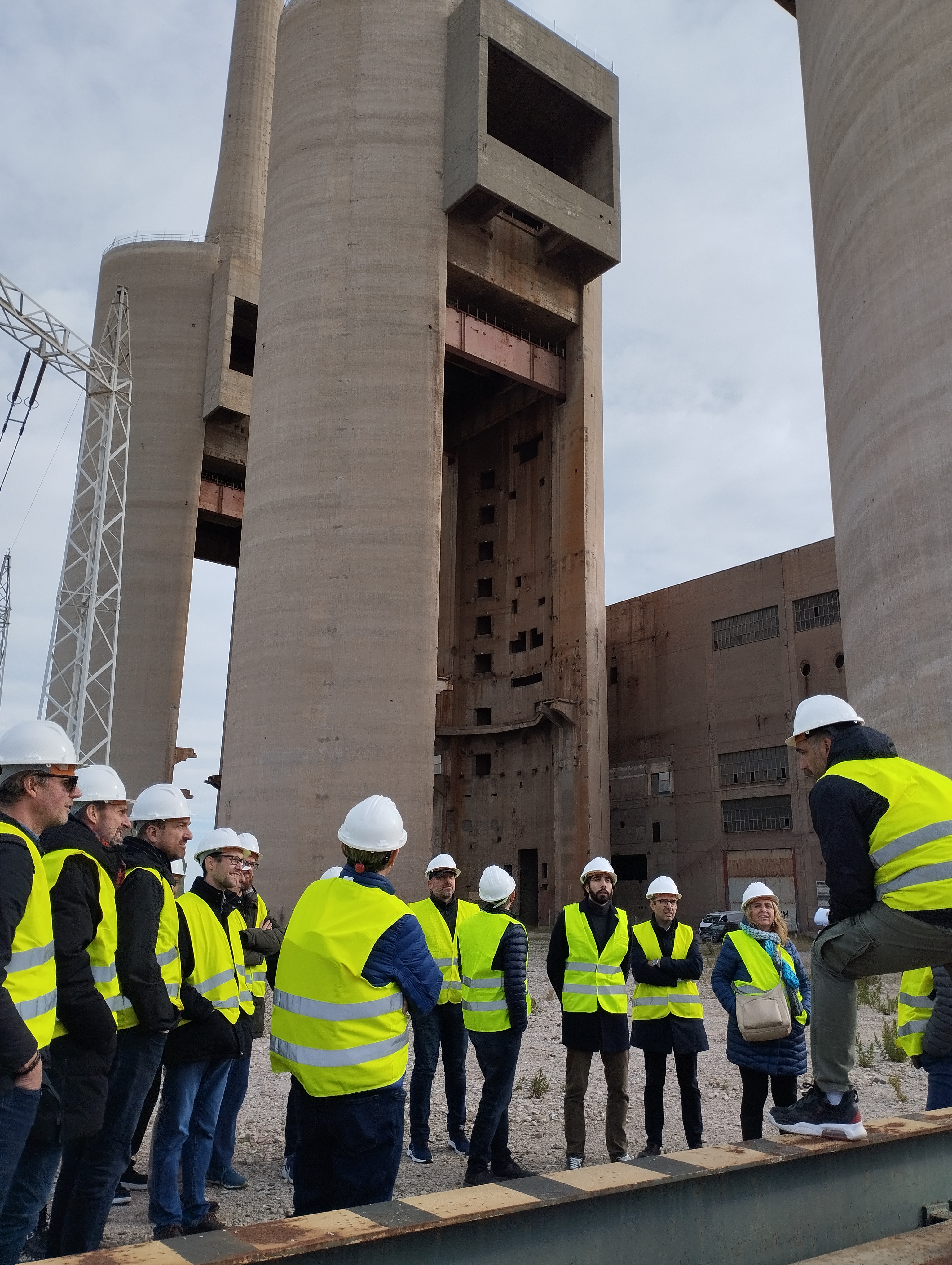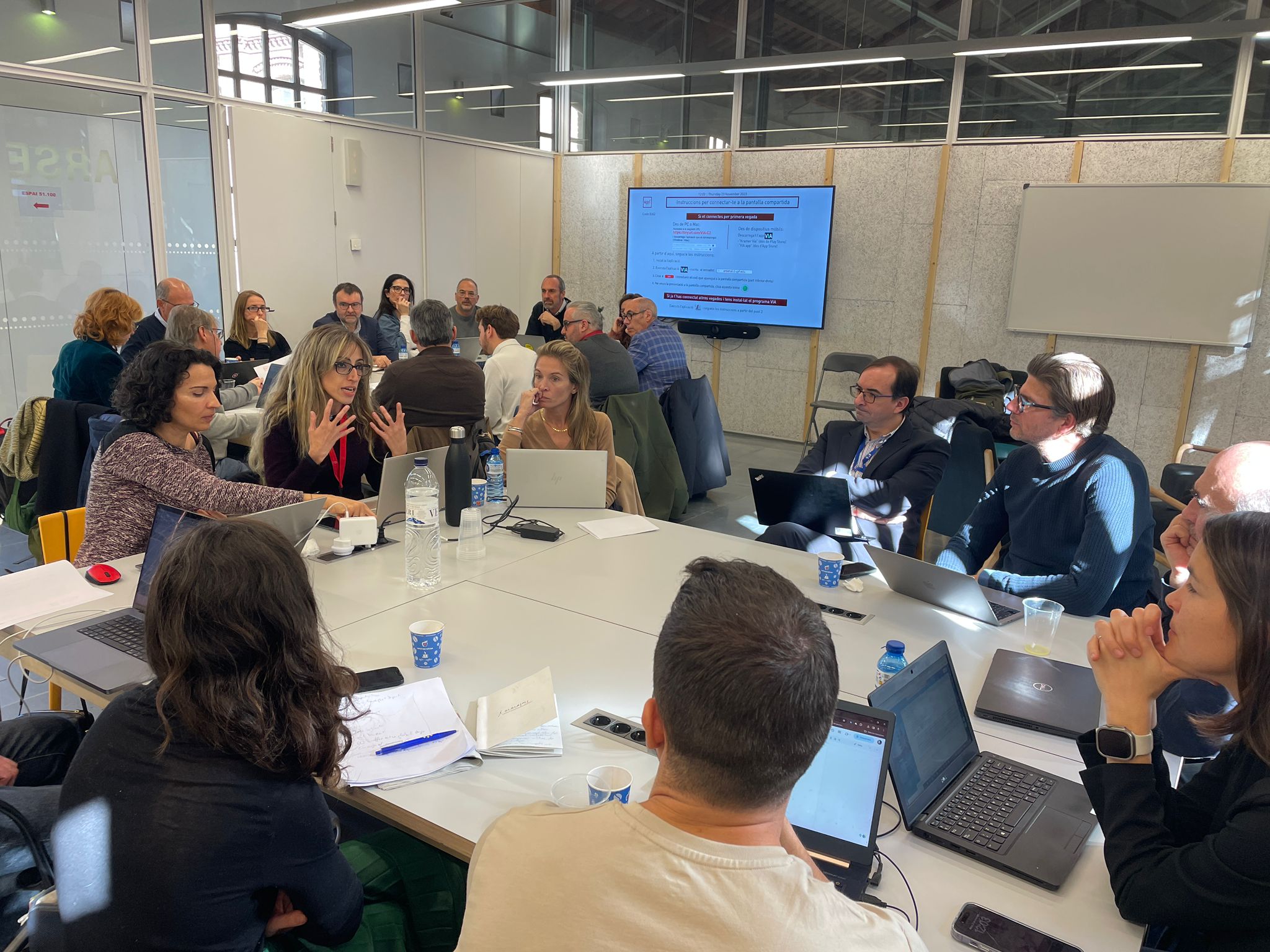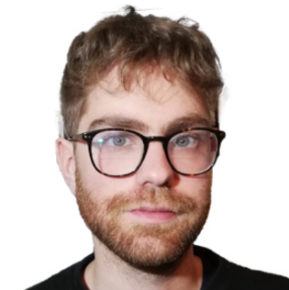The Chair in Futures of Communication issues the Letter from Barcelona, a call to Europe to lead the future of communication
The Chair in Futures of Communication issues the Letter from Barcelona, a call to Europe to lead the future of communication
On Friday 24th, the Letter from Barcelona was presented at Les Tres Xemeneies, the venue that will host the Catalonia Media City. It's a call to move towards a future where the European communication ecosystem is a world leader, while being fair and truthful. This declaration is driven by the Chair in Futures of Communication, initiated by UPF along with sixteen media, companies, and organizations from the sector. The Letter is the final outcome of the Crosspoint Meeting: Echoes of the Future, a European gathering where experts from up to six European countries came together to discuss the future of communication

The communication ecosystem is undergoing a process of change and transition. This system's evolution is marked by technological innovations (including artificial intelligence, blockchain, and spatial computing), the viability of business models, changes in consumption and content production patterns, among others. In this transformation, Europe must become a key player in achieving a successful communicative future, grounded in its foundational values. To this end, the Letter frmo Barcelona for a fair and truthful communication ecosystem in Europe was presented.
The unveiling of the Letter took place on Friday 24th at the Tres Xemeneies del Besòs, following discussions on its content at the Crosspoint Meeting: Echoes of the Future, which began on Thursday 23rd at the UPF's Poblenou campus. The venue for today's reading of the Charter symbolizes the importance of projecting future trends in communication, as the Tres Xemeneies del Besòs will host the future Catalonia Media City, a project to create a new media ecosystem led by the Generalitat. The Pompeu Fabra University, along with the Chair of Futures of Communication, is actively participating in the working groups designing this strategic project for the future of the media

After a visit to the facilities of Les Tres Xemeneies del Besòs, Jordi Balló, director of the Chair in Futures of Communication, introduced the presentation of the Letter and summarizing the reasons behind this act: “We were driven by the idea of foreseeing the future of communication with the participation of representatives from different countries, as the future of communication will not only be shaped by technologies and regulation but also by the changes and perspectives of the citizens themselves.”
Vanesa Daza, Vice-Rector of Knowledge Transfer (UPF): “It is necessary to prepare the various involved stakeholders so that technological advancements are applied for the benefit of a more just and sustainable communication”
Representing the governance team of UPF, Vanesa Daza, Vice-Rector of Knowledge Transfer, intervened. For Daza, “it is essential to prepare the different agents involved so that technological advances are applied for the benefit of a more just and sustainable communication,” and the Letter from Barcelona aims to be a “call to Europe” to “strengthen its role” towards this goal.
On behalf of the Catalunya Media City project, Miquel Rutllant, President of the Audiovisual Cluster of Catalonia, explained that one of its goals is precisely for administrations, universities, and industry companies to “work together” towards this objective, in addition to becoming a European benchmark in communication foresight connected with other global hubs.
Some of the experts from across Europe involved in the Echoes of the Future event also participated, such as Bugge Holm, head of innovation and technology at the Copenhagen Institute for Future Studies. For Holm, it is fundamental that the European communication sector “prepares for the future” and that spaces are opened for “reflection” on possible scenarios. Also expressing similar views were Dieter Boen, director of innovation at VRT, the Belgian public radio and television; and Matthias Schneider, co-founder of the innovation consultancy Nouvel. After their interventions, the Charter (complete text) was read by Bertran Salvador, coordinator of the Chair in Futures of Communication.
Conclusion of the Crosspoint Meeting: Echoes of the Future
These sessions included a series of presentations and keynotes on the future of the sector, as well as working tables where more than forty experts participated. The objective of these sessions was to analyze the future of the communication system, as well to discuss about the Letter from Barcelona and offer recommendations for its drafting.
Among the topics addressed, the impact of artificial intelligence on the media ecosystem, the need to establish a future mindset in various institutions and decision-making moments, and the future of press viability models, among other topics, were analyzed. With the presentation of the Letter, the Echoes for the future event was concluded, which saw the participation of experts from up to 7 different European countries.

Among the participants were Natali Helberger, professor of information law at the Institute for Information Law of the University of Amsterdam and an expert in AI regulation; Nic Newman, senior research associate at the Reuters Institute studying press and media trends; Dieter Boen, head of innovation at the Belgian VRT. Representing the European Commission, Diego Agúndez, representative of DG Connect; and Néstor Duch-Brown, director of the Digital Economy Unit of the Joint Research Center participated.

